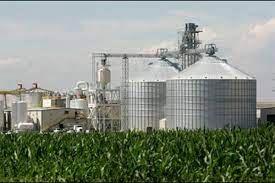 Three consortia are applying for permits to pipe carbon dioxide generated from ethanol plants in Iowa to Illinois and North Dakota. The three projects would sequester between 27 and 39 million metric tons of carbon dioxide annually in underground repositories. An academic at the Hildebrand Department of Petroleum and Geosystems Engineering at the University of Texas calculates that the state emits 86 million metric tons of carbon dioxide annually.
Three consortia are applying for permits to pipe carbon dioxide generated from ethanol plants in Iowa to Illinois and North Dakota. The three projects would sequester between 27 and 39 million metric tons of carbon dioxide annually in underground repositories. An academic at the Hildebrand Department of Petroleum and Geosystems Engineering at the University of Texas calculates that the state emits 86 million metric tons of carbon dioxide annually.
The need to install pipelines to states willing to sequester carbon dioxide emanating from ethanol plants raises the questions of the actual sustainability and environmental contribution of corn- based fuel. A bushel of corn will produce equal quantities of ethanol, DDGS, and carbon dioxide. If in fact over the decades ethanol plants have been releasing carbon dioxide to the atmosphere, the “sustainability” claims by the renewable fuel industry are misleading.
The U.S. captures 23 million metric tons of carbon dioxide from handling natural gas and the manufacturing of fertilizer. A proportion is used to enhance oil recovery and does not add to atmospheric carbon dioxide.